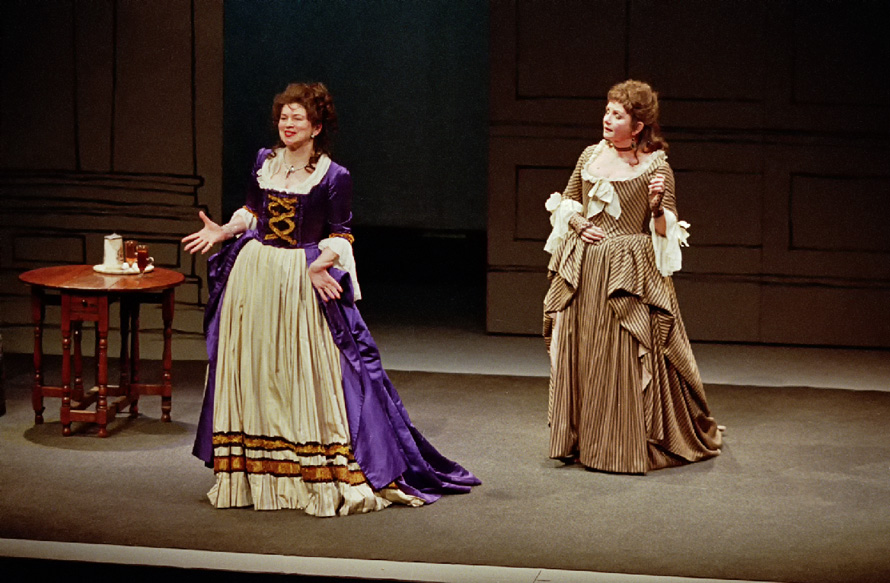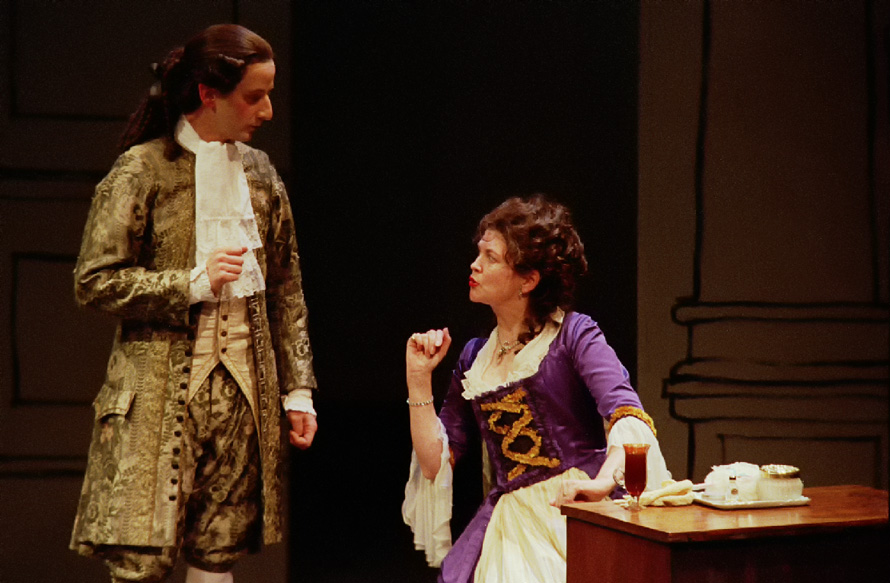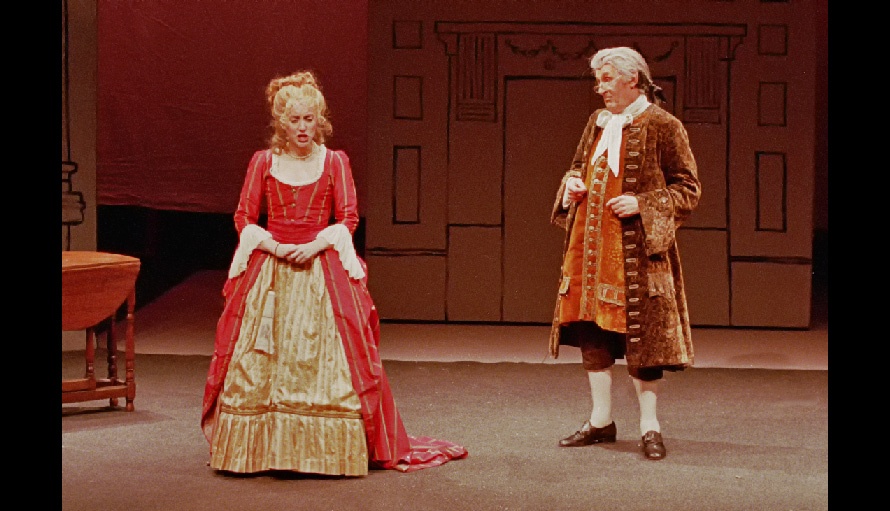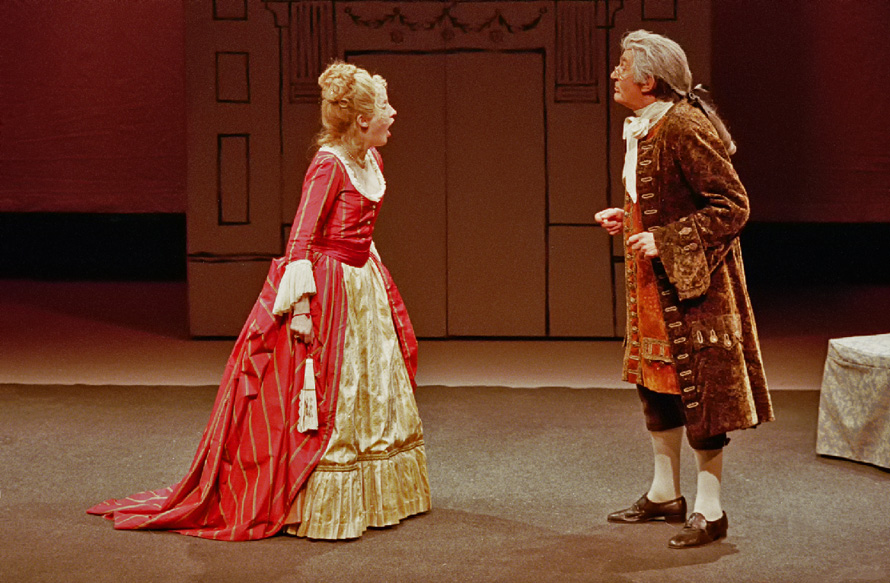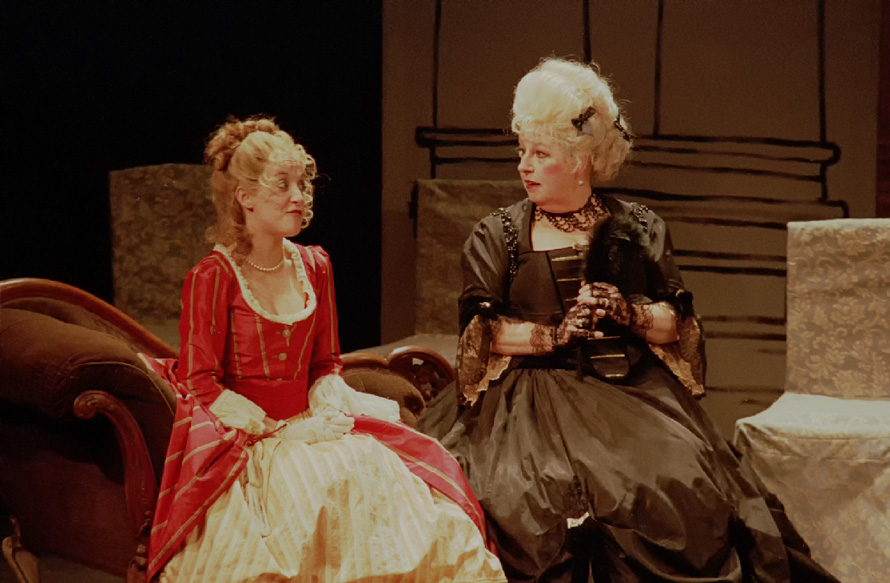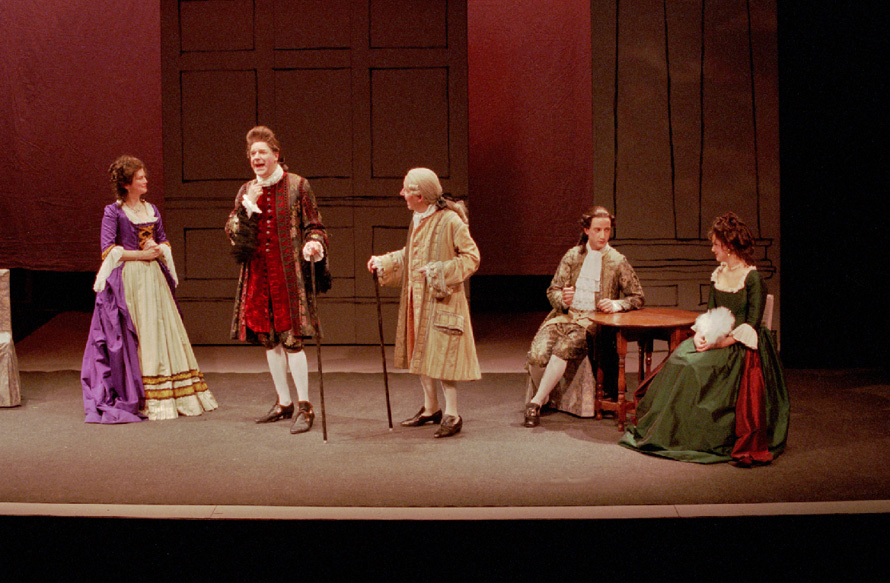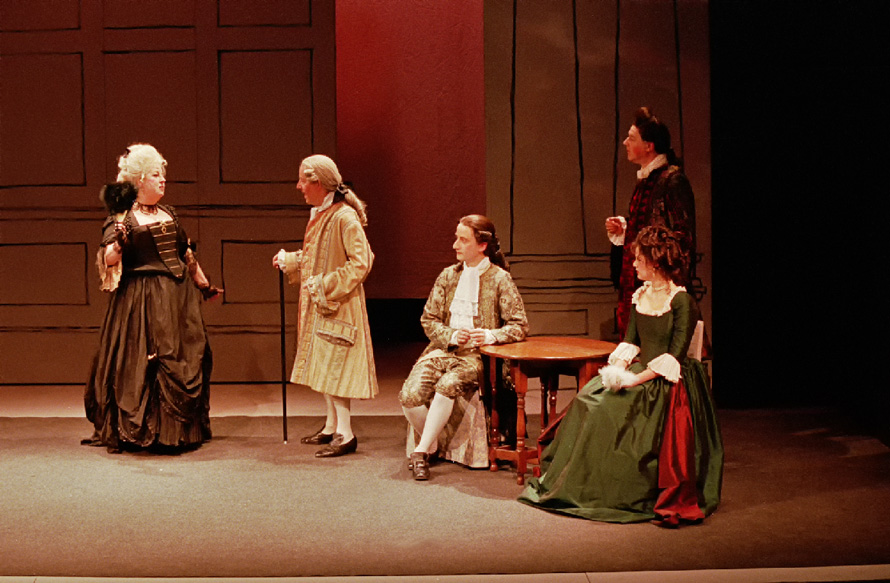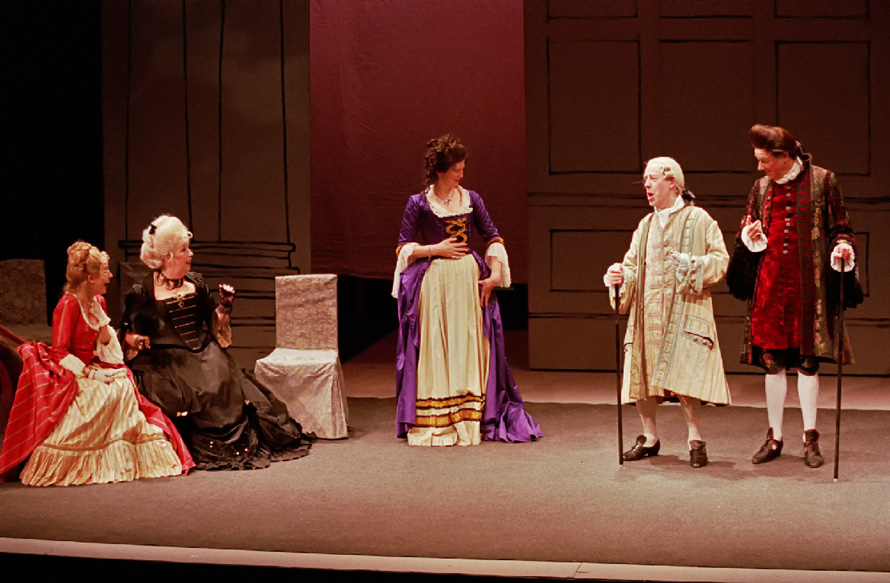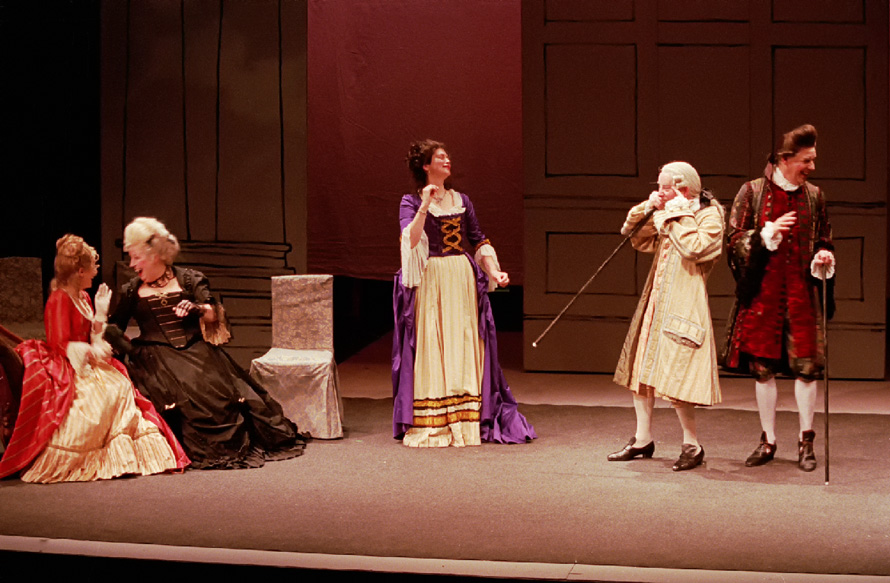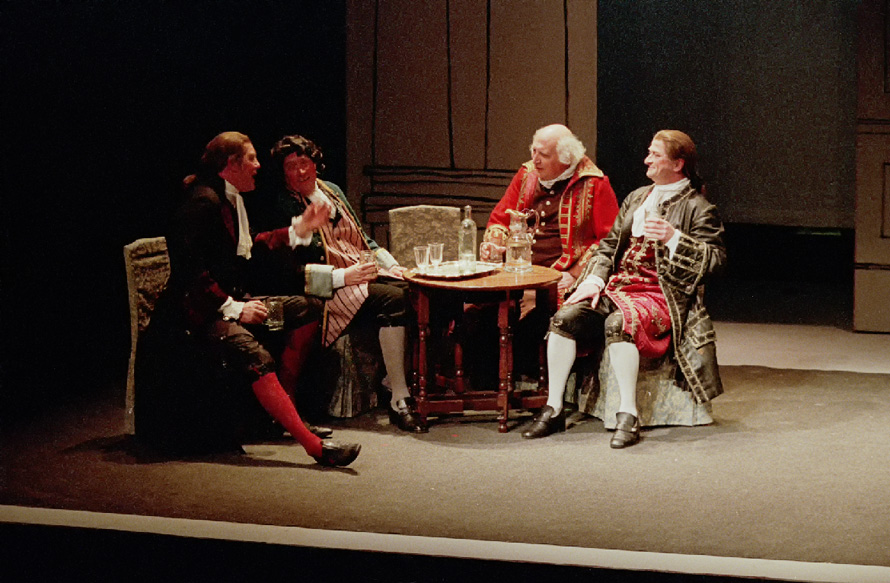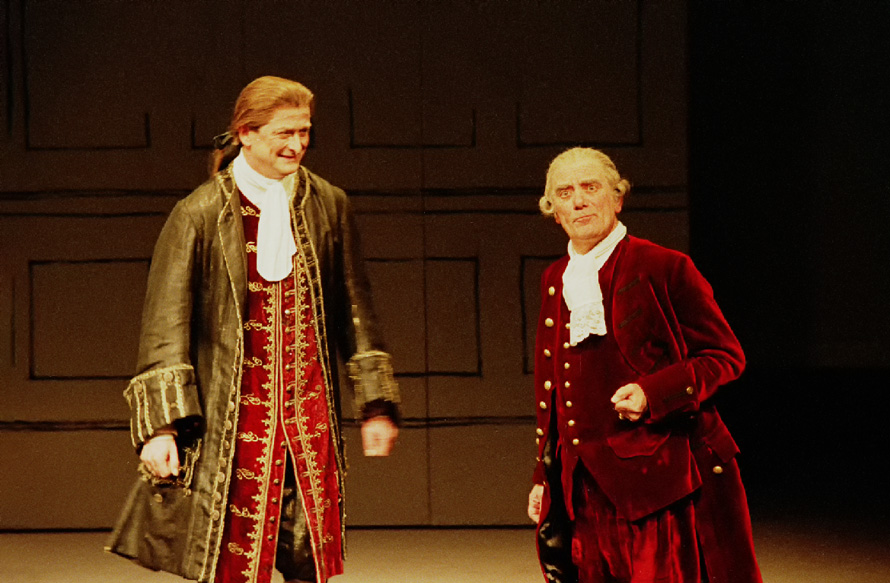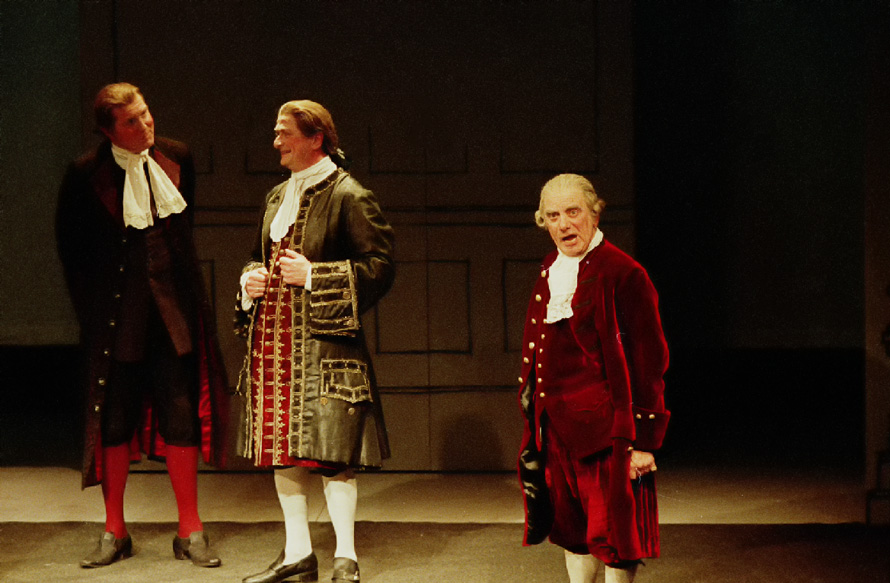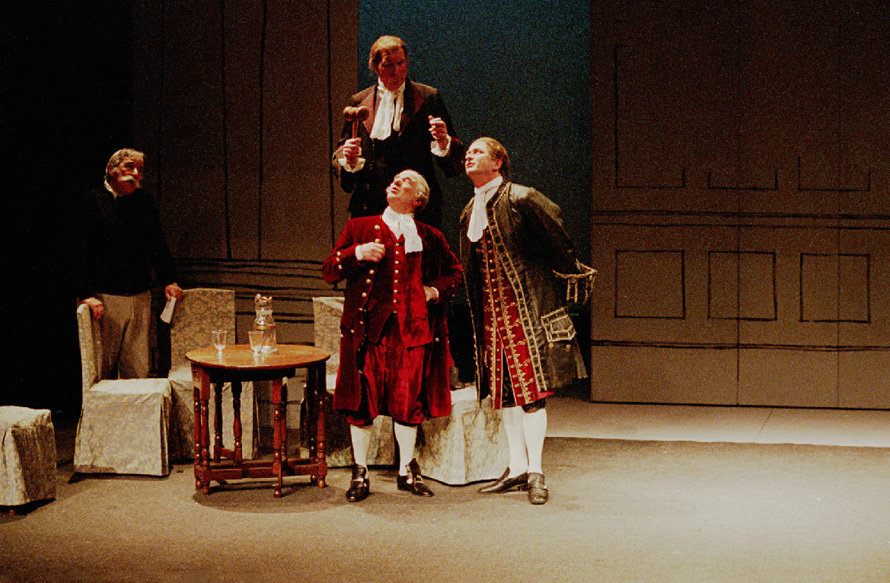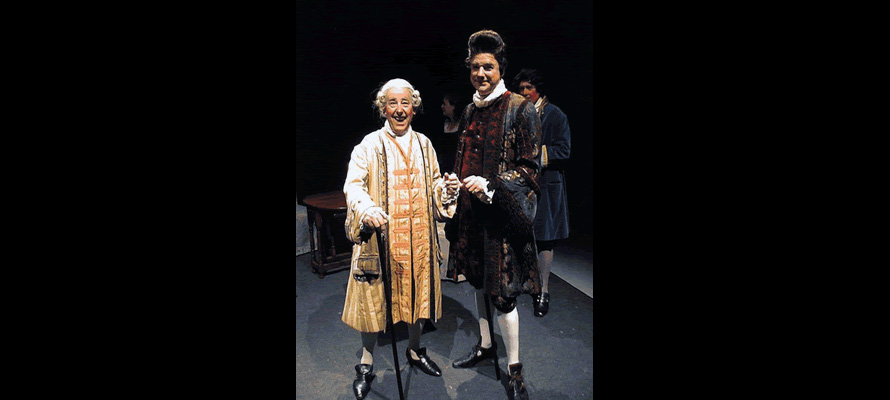Nuffield Theatre
on18th to 22rd January 2000
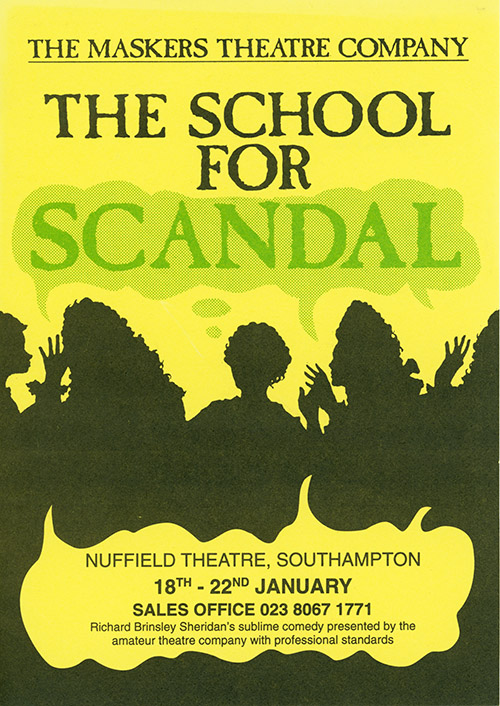
The School for Scandal ~ Love, Marriage, Divorce and even Sex
Like many elements in the social scene of 1777 attitudes to love and marriage were in a state of flux. It's one of the biggest mistakes one can make to assume that historic and sociological changes happen overnight. They don't, and changing attitudes to marriage are clearly perceptible from the Restoration - over a hundred years before our play - and two distinct attitudes to marriage, co-existing side by side, are very clear. The old view was that romantic love and lust, being ephemeral, had no great part in so important and life-long business as marriage. For the propertied classes the aims of marriage were to ensure the continuity of the male line; the preservation intact of the family property; and the creation, in the broadest possible sense, of political alliances. The decision to marry was a family not a personal decision and even if Lady Teazle had wanted to refuse Sir Peter, which she clearly didn't, it would have been very difficult, given his wealth and position, for her to do so. Lady Teazle has in no way behaved badly or foolishly in marrying for wealth and position; the foolish one, in the eyes of his 18th century world, is Peter, for marrying for love.
It need hardly be said that women got a rotten deal. A husband and wife were one person in the eyes of the law and that person was the man. A woman's property became the man's, absolutely, on marriage. Divorce was very expensive; it took a long time and could only be secured by a private Act of Parliament. Adultery was grounds for divorce if the woman was the adulterous partner, but not the other way round. A wife could only divorce her husband on the grounds of non-consummation or gross cruelty.
But the idea of love as a ground for marriage took such hold that the Hardwick Marriage Act of 1753 made it illegal for young people to marry without their parents' consent until they were 21.
The mid-Georgian period was extremely tolerant of adultery and sexual aberration in general, and by the middle of the 18th century a new ideal for happy life included pleasure and sexual pleasure - something that was not going to come again until the 1960s.
Richard Brinsley Sheridan
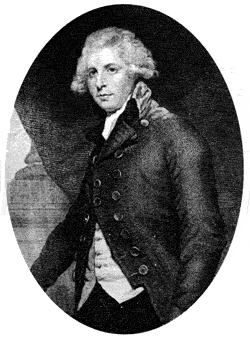
Sheridan was born in Dublin, the son of an actor-manager. His mother, Frances, was a novelist and dramatist. He left Ireland at the age of eight, never to return, and was educated at Harrow. His family settled in Bath, and it was there that he met a young singer named Elizabeth Linley, with whom he fell in love. Separated by their disapproving parents, Sheridan (who by this time was reading law) fought two duels with a former admirer of Miss Linley. He and Elizabeth were eventually married in 1773 and he was called to the Bar. Looking for ways to make money, Sheridan hastily wrote a play called The Rivals which was accepted by the manager of Covent Garden Theatre and produced in January 1775. The first performance met with a hostile reception from the audience, due mainly to the excessive length. The play was withdrawn, re-written and re-cast; and only eleven days after the first disastrous performance, became a triumphant hit. Sheridan was to enjoy five years as a celebrity playwright. In 1776 he bought Garrick's share in Drury Lane Theatre, where all his later plays were produced, including The School for Scandal in 1777 and The Critic in 1779. In 1780 he became MP for Stafford and remained in Parliament for thirty years.
Throughout this period he remained manager of Drury Lane Theatre which he rebuilt in 1794, exploiting the popular taste for spectacle and pantomime, but always in financial difficulties and embroiled in arguments with rival theatre managers. In 1809 the Theatre was destroyed by fire, a loss from which he never recovered, and in 1812 he lost his seat at Westminster. His last years were unhappy, spent in ill-health and debt. He died on 7 July 1816 and was given a magnificent burial in Westminster Abbey.
| Cast | |
| Lady Sneerwell | Sarah Lynn |
| Mistress Sanke | Hazel Burrows |
| Lappett, maid to Lady Sneerwell | Hannah Loftus |
| Joseph Surface | Alec Walters |
| Mari, ward to Sir Peter | Amelia Morse |
| Mrs Candour | Jenni Watson |
| Crabtree | Graham Buchanan |
| Sir Peter Teazle | Ken Hann |
| Rowley | Harry Tuffill |
| Lady Teazle | Nicky Housham |
| Sir Oliver Surface | Albie Minns |
| Moses, a money lender | Ken Spencer |
| Trip, servant to Sir Charles | Carl Dunnington |
| Charles Surface | David Cradduck |
| Careless | Alan Watson |
| Sir Harry Bumper | Tony Austin |
| Toby Maltravers | Ron Randall |
| William, servant to Sir Joseph | Tony Bull |
| Tippett, maid to Lady Teazle | Jassie Elliott |
| For the Maskers | |
| Director | Ken Spencer |
| Stage Manager | Helen White |
| Stage Team | Chris Bartwell, Emma Carrington, Matthew Tuffill, Julia Campone, Shauna Lockett, Jez Minns, Val Barwell |
| Set Design | Ken Spencer |
| Set Construction | Douglas Shiell, Jez Minns |
| Lighting Design | Peter Gibson |
| Lighting Operator | Martin Clift |
| Sound | Lawrie Gee |
| Wardrobe | Serena Brown |
| Costume Hire | Royal Shakespeare Company |
| Properties | Ella Lockett, Gill Buchanan |
| Marketing & Publicity | Harry Tuffill, Rob Robinson |
| Programme Production | Sandy White |
| Lady Macduff | Angie Stansbridge |
| Macduff's Daughter | Hannah Stansbridge |
| Gentlewoman | Shona Lupton |
| Doctor | David Jupp |
| Messenger | Jez Minns |
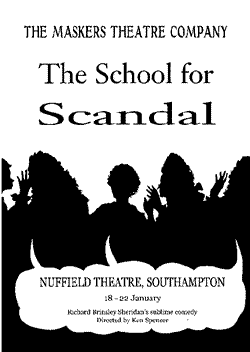
click on a photo to enlarge it
